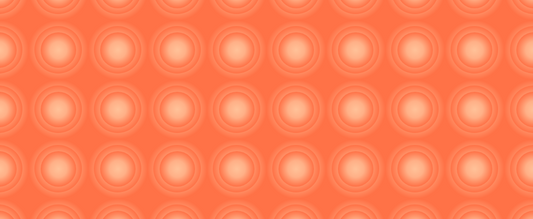Introduction
My name is Laura Phelan, and I am a Self-Image Specialist and Transformational Coach. I work with ambitious individuals, helping them break free from negative self-perceptions, boost confidence levels, and become their best, most authentic selves through my coaching programme, ‘The Self Image Solution’ so they can thrive in their personal lives and careers because they have a bulletproof sense of self!
I was diagnosed with ADHD two years ago, so I know from experience the unique challenges it can bring, and learning to harness it and create my own ‘self-strategy’ has turned it into a superpower! I see first-hand the difference in my own wellbeing when I have a good routine in place – getting some sunlight each day, eating well and taking my
supplements – so I know how much these things can help others too!
A phrase I've coined to help my clients is ‘loving discipline’. As ADHDers, we love things that are new and spicy and shiny, but perhaps counterintuitively, we are also creatures of routine.
Loving discipline is about having a set of tools and a bank of activities you can choose from each day, depending on your mood and energy levels. It could include things like taking an exercise class, indulging in a creative hobby, or making sure you’re eating the right foods. This can help to keep your wellbeing on track in a way that feels loving and helpful, and importantly - not boring!
The Impact of Seasonal Changes
Our bodies are incredibly responsive to the changing of the seasons, which can seriously impact your wellbeing. Here are some of the things you may experience as we move from one season to the next.
-Energy Levels
You may feel more sluggish during the winter months and find yourself going into hibernation mode. During this time, it can be very tempting to stay indoors seeking warmth, comfort and cosiness, and you may find your activity levels are significantly lower than they are in the summer months.
This is because cold weather and dark days signal your body to conserve energy, whereas warm temperatures and increased sunlight can boost your energy. Getting outside is even more important so aim for at least 30 minutes each day, rain or shine.
-Dietary Changes
When the weather gets colder, you might find yourself craving more calorie-dense or carb-rich foods for warmth and energy, whereas lighter options may be more appealing when the sun is shining. The change in light during winter can impact hunger receptors, especially in women, who may find themselves craving food around 4pm once it gets dark.
Try and think ‘nourishment over numbers’ - opting for all the major food groups, lots of whole foods, and a good hot chocolate or chai latte for winter comfort!
-Mental Health
Seasonal Affective Disorder (SAD) may be triggered in winter as reduced levels of sunlight lower your serotonin. This can negatively impact your mental health, causing depression and anxiety. You may also experience physical symptoms, such as depleted energy levels or poor sleep.
Practical Tips to Boost your Winter Wellbeing
Luckily, there are manageable, ADHD-friendly changes you can implement to help boost your physical and mental health during the long winter months.
-Build a Good Morning Routine
When mornings are dark and cold, it can be tempting to hide under the covers and indulge in some serious doomscrolling, but this is not conducive to a productive, energised day.
Try and put some healthier practices in place. Instead of scrolling, try to do something more mindful, such as meditation or reading a book. This can help to reduce stress, improve focus and boost your mood.
-Tap Yourself Happy
If you’re not familiar with the practice, Emotional Freedom Technique (EFT) or Tapping therapy, is a technique that involves tapping on particular parts of your body to stimulate your meridian points. You can do this whilst focusing on an issue or vocalising an affirmation.
If you’ve ever had acupuncture, you may be familiar with the meridian points. These include:
• Just below your collarbone
• The outer corner of the eye
• Under your nose
• The side of your hand (below the pinky)
• Your underarm
• The crown of your head
Stimulating these points is believed to release blockages in your energy flow, calm anxiety and release stress.
You can also accompany the tapping with an affirmation. These will obviously vary depending on what your emotional needs are at the time, but some examples you may want to consider are:
‘I choose calm’
‘I can do this’
‘I am loved’
‘I am at peace’
-Pack in some protein
What we eat can have a big impact on our mental wellbeing. Although the cold weather might make us crave starchy or high-carb foods, these can cause a rapid spike in your blood sugar levels, followed by a crash. This can leave you feeling irritable, fatigued, and possibly craving more carbs.
Starting the day with some
protein keeps your energy and mood on more of an even keel. Don’t worry - we’re not talking about prepping elaborate recipes, but if you could breakfast on yoghurt with nuts, smashed avocado or scrambled eggs, you’ll find it much easier to enter the day feeling energised and positive.
-Cold water exposure
It might sound like the last thing you feel like doing when it’s chilly outside, but cold water exposure has been shown to have a range of benefits for your physical and mental health. From boosting your immune system, to lowering fatigue, to regulating mood, studies
(1) have indicated it can be great for your wellbeing.
Not all of us are lucky enough to live near the sea or have access to an ice bath, but that’s ok – blasting the cold water for a couple of minutes when you take a shower can still be beneficial.
I hope these techniques are beneficial to you whilst you navigate the change in seasons. With a bit of effort and planning, even small changes can make a huge difference to your day-to-day life, and I’m excited for you to start feeling the benefits!
About the Author
Laura is the founder of The Self Image Solution. She helps clients thrive in their personal lives and careers by building their self-worth and tackling imposter syndrome through a blend of Psychological, Mindset and Somatic tools. To find out more about Laura’s work, or book a consultation call, visit her website and follow Laura on socials.











